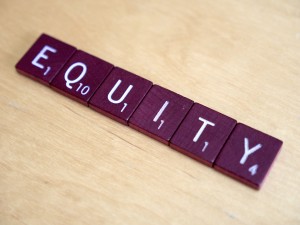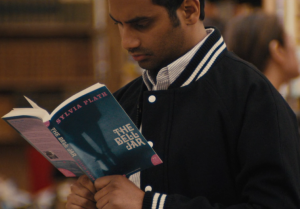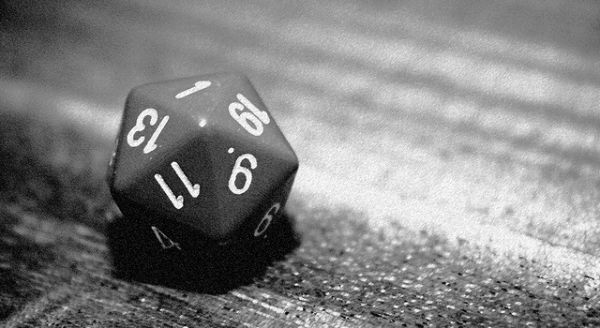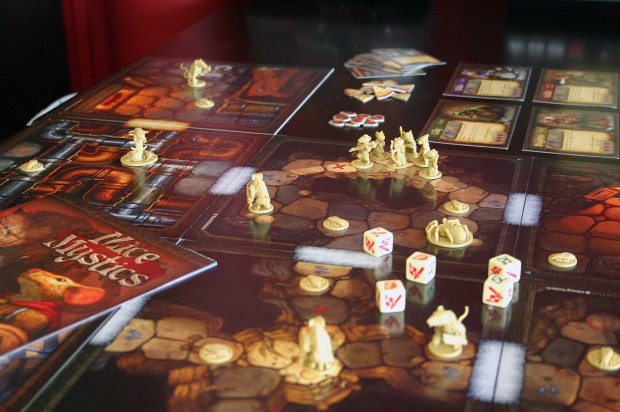This fall I was pulled into watching the Netflix original series, Master of None starring Aziz Ansari, with the promise of diversity and feminist thought. Being a little outside of what I see as the shows intended demographic (but I basically play games for a living so what the hell, right?) I was a little hesitant at first, but I gave it a shot. Let me say I didn’t love the show, but I did find it a pleasant enough distraction. the main character Dev wasn’t overtly offensive to me though he was extremely problematic at times (but more on that later).
 I shared some of my initial tentativeness with a friend who told me that I had to stick with it at least through the feminism episode, which after some quick Netflix perusal I learned was episode seven and aptly titled “Ladies and Gentlemen”. Yeah, ok. So I stuck with it and made it to episode seven. (Warning: Spoilers for this episode follow). The episode begins with a woman being aggressively stalked by some dude from a bar who follows her home and harasses her until she calls the police. We then learn that she is one of the women working with Dev on the set of a commercial that he is in. She tells him all about it at the Kraft table during a break because that’s what you do around the water cooler at work, right? For the sake of brevity…over the course of the next fifteen minutes or so he gets schooled on misogyny by his girlfriend and Black, butch, lesbian friend and has his worldview changed. This is the same guy who has spent the previous six episodes figuring out how not to get one night stands pregnant, trying to “buy” a date with a pretty waitress with priceless tickets to a secret concert, and making the final decision to sleep with a married woman who was pursuing him because her husband took the last fucking banana split at a gelato spot. You take my ice cream, I’ll fuck your wife.
I shared some of my initial tentativeness with a friend who told me that I had to stick with it at least through the feminism episode, which after some quick Netflix perusal I learned was episode seven and aptly titled “Ladies and Gentlemen”. Yeah, ok. So I stuck with it and made it to episode seven. (Warning: Spoilers for this episode follow). The episode begins with a woman being aggressively stalked by some dude from a bar who follows her home and harasses her until she calls the police. We then learn that she is one of the women working with Dev on the set of a commercial that he is in. She tells him all about it at the Kraft table during a break because that’s what you do around the water cooler at work, right? For the sake of brevity…over the course of the next fifteen minutes or so he gets schooled on misogyny by his girlfriend and Black, butch, lesbian friend and has his worldview changed. This is the same guy who has spent the previous six episodes figuring out how not to get one night stands pregnant, trying to “buy” a date with a pretty waitress with priceless tickets to a secret concert, and making the final decision to sleep with a married woman who was pursuing him because her husband took the last fucking banana split at a gelato spot. You take my ice cream, I’ll fuck your wife.
Ok, I get it, Master of None is comedy, but it’s supposed to be socially aware comedy, right? And Dev’s welcome to feminism (enlightenment) party is at least ridiculous (if not funny). He spends a drunken night dancing frantically with the women from the commercial crew as they celebrate their new ally. He ends the night in drunken conversation with the commercial’s director talking about gender inequity and questioning even the commercial that they are shooting and wondering why the women in the cookout scene are serving lemonade and grilled meats in the background while the men are upfront doing dude stuff like grilling and selling rakes. Go, Dev! The next day Dev rolls onto set to find that his trailer has been taken from him and all of the gender roles in the commercial have been reversed. He has gone from being star to being extra. That’s what you get for standing up for bitches, amirite?
Dev even gets into a fight with his girlfriend as he ultimately blames her for his initial enlightenment and after she thoroughly chastises him for his misogynistic behavior she quickly accepts his lame ass excuse and dances off (literally) down the street screaming something akin to “I won!”, while she stands on the street corner, yelling into the darkness “Why can’t we both win?”. My initial response to this was, “What the actual fuck?”. Was I really seeing this? Was this really supposed to be feminist social critique because it felt like the exact opposite.
 I sat with this episode of Master of None for a good bit after I finished watching it. I had a lot of questions and uneasy feelings. Why did this episode hit so close to home for me? And then I realized that the problem with “Ladies and Gentlemen” was the problem of allies. Don’t get me wrong, I’m not talking all allies. I think that allies in any movement are necessary for movements to succeed, but we do still have those allies. The ones who seem to join a movement because it’s trendy (or even because they believe in it), but who aren’t willing to actually give up their own privilege to see it succeed or even in the process. Those who refuse to see the need for the voices of the oppressed to always be at the fore in the conversation and have a kind of pissed off epiphany when they realize that if the movement that they are working for actually gets the thing that they ultimately want that they they will lose their position of power, of privilege. It’s part of equity, privilege must fall by the wayside.
I sat with this episode of Master of None for a good bit after I finished watching it. I had a lot of questions and uneasy feelings. Why did this episode hit so close to home for me? And then I realized that the problem with “Ladies and Gentlemen” was the problem of allies. Don’t get me wrong, I’m not talking all allies. I think that allies in any movement are necessary for movements to succeed, but we do still have those allies. The ones who seem to join a movement because it’s trendy (or even because they believe in it), but who aren’t willing to actually give up their own privilege to see it succeed or even in the process. Those who refuse to see the need for the voices of the oppressed to always be at the fore in the conversation and have a kind of pissed off epiphany when they realize that if the movement that they are working for actually gets the thing that they ultimately want that they they will lose their position of power, of privilege. It’s part of equity, privilege must fall by the wayside.
In this episode of Master of None, Dev quickly sees how he has benefited from the same gender inequity that he has celebrated the coming downfall of and rather than reflecting on what an equitable society would actually look like or upon his own sexist and misogynist behavior in the previous six episodes he seems to lack the depth of character (and of the character) and insight to do anything other than fall back into his old ways and bemoan his own trivial lose. Rape culture, microaggressions, employment inequity be damned.
Ultimately, I am not sure of what it is that Master of None is trying to achieve. It seems that they are going for consciousness raising and falling exceedingly short with vapid, whiny female characters and angsty male characters who ultimately seem to feel oppressed by feminism and women in general. Is this a problem of interpretation or yet another case where a lack of sufficient diversity has hobbled the concept from the beginning because it is (in this case) created, produced, and written by men? Is it the problem of not putting the voices of the women at the fore and simply telling it from the POV of a man? Sadly, I’m not sure if any comedy series has tackled these issues successfully. Perhaps, the genre is incapable of doing so. Perhaps any genre is.





